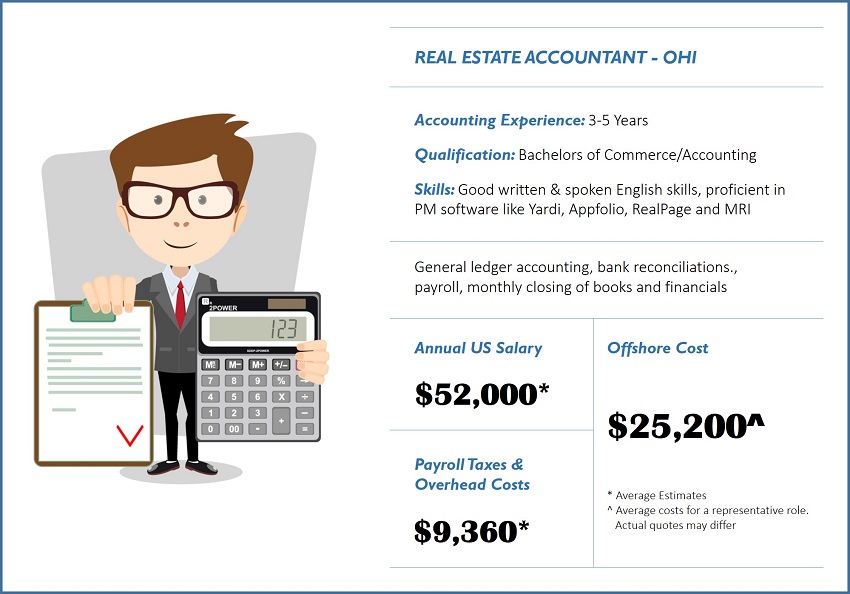Why Property Owners Trust Real Estate Tax Services for Better Financial Management
Why Property Owners Trust Real Estate Tax Services for Better Financial Management
Blog Article
Browsing the Obstacles of Building Accountancy in the Building And Construction & Property Sector
The building and actual estate industries present one-of-a-kind economic obstacles that call for a nuanced understanding of accounting techniques. The landscape continues to be fraught with complexities that can restrain task success and monetary health.

One-of-a-kind Financial Obstacles
In the world of building accountancy, distinct monetary difficulties often emerge as a result of the industry's fundamental intricacies. One famous problem is the administration of money circulation, which is typically uncertain as a result of the intermittent nature of building and construction jobs. Hold-ups in job completion can cause pay shortages, affecting the capability to pay subcontractors and providers promptly.
Additionally, the prevalence of modification orders complicates monetary forecasting. These alterations, which can emerge from design alterations or unexpected website problems, might significantly influence timelines and budgets (Real Estate Accountants). Properly tracking these changes while keeping transparency with stakeholders is important
An additional difficulty is the requirement for accurate task costing. Each project involves multiple prices, consisting of labor, products, and overhead, which must be carefully assigned to make sure productivity. Mismanagement around can result in cost overruns or losses.
Importance of Accurate Budgeting
Accurate budgeting functions as the foundation of effective construction projects, directly affecting a firm's economic wellness and project feasibility. In the building and construction and real estate fields, accurate budget formula is essential, as it dictates the allocation of resources, labor, and products (Construction CPA Accounting Firm). A well-structured budget enables project managers to anticipate expenditures precisely and set realistic timelines, guaranteeing that tasks remain on track and within monetary constraints
In addition, accurate budgeting promotes accountability and openness among stakeholders. By offering a clear economic roadmap, it aids to reduce dangers related to cost overruns and unanticipated expenses. Building and construction companies that prioritize budgeting can much better discuss contracts, take care of subcontractor settlements, and stay clear of disputes over financial inconsistencies.
Furthermore, a dependable budget plan assists in effective decision-making, permitting firms to pivot and adjust to unexpected difficulties, such as fluctuating material expenses or regulative changes. Ultimately, the importance of precise budgeting can not be overemphasized; it not just sustains the successful execution of individual tasks but likewise contributes to the long-term sustainability and development of construction firms in an affordable market.
Capital Management Techniques
Reliable cash flow management is essential for maintaining the financial stability of building tasks, specifically following the facility of a solid budget plan. Construction companies need to carry out techniques that ensure the timely inflow and discharge of cash money, thus protecting against liquidity problems that can hinder project development.
One reliable method is to establish a methodical invoicing process that aligns with project landmarks. Construction & Real Estate. By issuing invoices quickly upon conclusion of key phases, firms can accelerate cash money inflows. Furthermore, supplying very early repayment discounts can incentivize customers to resolve bills quicker, boosting money circulation
An additional vital strategy is to very closely keep an eye on accounts receivable and payable. Regularly assessing exceptional billings permits companies to determine and attend to potential hold-ups in settlements, while tactical management of payables can aid prolong cash money schedule without endangering relationships with distributors.
In addition, maintaining a cash reserve is necessary. This barrier can cover unexpected expenses or hold-ups in repayment, guaranteeing job continuity. Finally, making use of cash flow projecting tools can offer insights into future cash requirements, enabling companies to make educated financial choices and reduce threats related to cash money lacks. With these methods, building firms can browse money flow obstacles efficiently.
Conformity and Regulative Concerns
Various compliance and regulative problems can substantially influence the building industry, necessitating mindful navigation to prevent costly fines and project delays. Building and construction companies must follow a myriad of regulations at regional, state, and federal levels, consisting of building ordinance, labor legislations, and ecological regulations. Failure to conform can cause penalties, project shutdowns, or lawful disagreements.
Licensing and permit requirements are critical elements of conformity. Contractors need to make certain that all needed permits are gotten and that employees hold the ideal moved here licenses. Non-compliance in this field can bring about substantial delays and increased costs.
Additionally, adherence to security regulations, such as those detailed by the Occupational Safety and Health Administration (OSHA), is extremely important. A lack of compliance can not just jeopardize worker safety but additionally reveal business to obligation and reputational damage.
Environmental policies also play an essential duty, specifically worrying garbage disposal and site remediation. Firms must have techniques in place to monitor and manage their ecological influence successfully.

Best Practices for Building Audit
Navigating the complexities of conformity and governing concerns in the construction industry highlights the relevance of sound financial administration techniques. To achieve effective building accountancy, firms need to implement several finest practices that improve precision, performance, and openness.
To start with, adopting a robust work costing system is essential. This enables meticulous monitoring of costs associated with each task, assisting in better budget plan management and earnings analysis. Second of all, precise and prompt invoicing is important. Implementing progression invoicing can aid preserve capital and lower the threat of disputes with customers.
In addition, routine reconciliation of accounts is essential to make sure that financial documents align with financial institution declarations and project prices. Using customized construction audit software application can simplify these processes, enhancing information precision and availability.

Additionally, preserving meticulous paperwork of contracts, adjustment orders, and document will certainly aid in compliance and function as a reference during audits. Investing in continual training for accounting team on industry-specific guidelines and accountancy standards will boost more general financial management capacities.
Final Thought
Finally, navigating the intricacies of building bookkeeping necessitates a comprehensive understanding of unique economic difficulties, emphasizing the importance of exact budgeting and efficient money flow management. Adherence to conformity and governing demands is vital to alleviate risks connected with job changes. Implementing ideal techniques in building accounting boosts monetary openness and functional honesty, inevitably supporting the sustainability and stability of tasks within the building and construction and property industry.

Report this page